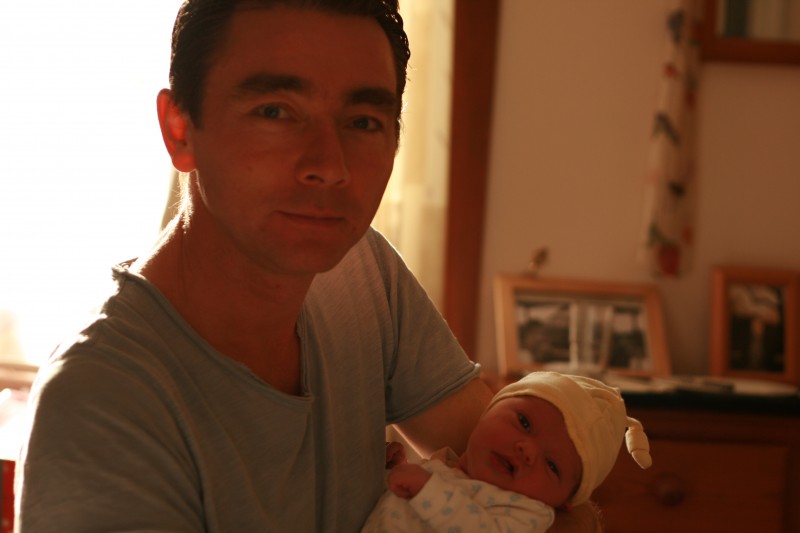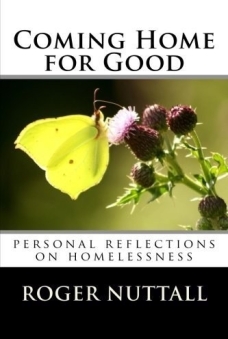 The People Powered Mass Meeting I attended a few weeks ago was far more inspiring than I’d anticipated. It wasn’t just seeing Corbyn himself, but also the many younger people motivated by him into politics, and whose vision created an atmosphere of hope, positivity and, above all, COMPASSION. I was unexpectedly exhilarated.
The People Powered Mass Meeting I attended a few weeks ago was far more inspiring than I’d anticipated. It wasn’t just seeing Corbyn himself, but also the many younger people motivated by him into politics, and whose vision created an atmosphere of hope, positivity and, above all, COMPASSION. I was unexpectedly exhilarated.
And then…. the other day, I met a man who looked just like Jeremy, only a few years older and a bit tramp-like in his appearance with a long coat over his many layers, pacing around the platform at St Leonards Warrior Square Station, talking animatedly to himself. Or, perhaps, to anyone who would listen.
…which was nobody.
I was intrigued by the eccentric Corbynesque character.
As I entered the train, the Jeremy doppelganger got on board too, continuing to jabber away, now monologuing on the subject of first and second class carriages. I must have caught his eye, because he sat himself down across the aisle and avidly directed an anecdote at me, about a time a guard had followed him off a train, chasing him for the correct fare after catching him sitting in first class. A rather worried and sharply disapproving looking man sitting opposite him clutched tightly on to his travel bag in the presence of the slightly odd, larger-than-life character.
I cheerfully engaged ‘Jeremy 2’ as he told me his tale. To be honest, I was quite glad when he got off at the next station, as I was itching to have some time to read quietly and catch up on emails. But I also enjoyed his friendly, cheerful humour and, perhaps above all, his ‘differentness’.
I seem to be drawn to people who sit outside of society’s ‘norms’, and wouldn’t ordinarily have thought too much of the encounter. What struck me on this occasion, though, was the sharp contrast between myself and the man sitting opposite the Corbyn lookalike (and all the other people determined to ignore him).
This particular day I felt proud to be the one who gave time to a man shunned by others. I was reminded of some words from the other JC (not Jeremy but Jesus), who said that whatever we did for ‘the least of these’, we did for him.
It seemed that by giving time and respect to the Corbyn lookalike, I was actually giving time and respect for Corbyn himself.
Oh no, sorry, not Corbyn. Jesus. The real JC.
When we actively include the ‘other’, whether through casual conversation like this, or through the support of inclusive campaigns and policies, we include and nurture the Divine presence and extend the reality of Christ in this world.
The episode contrasted poignantly with another encounter later in the day, when I was the judgmental one…
My journey from St Leonards to London was to attend a very formal awards ceremony in an ancient church steeped in a fascinating history of humanitarian spirituality. I found myself seated next to a retired judge who, on first impressions, seemed to fit all the stereotypes of a man of his position: portly (I don’t think I’ve ever used the word ‘portly’ before, but it seems like the perfect word for a somewhat rotund judge), a tad pompous, and somewhat narcissistic: he delighted in telling me about his OBE.
Not only that, but like ‘Jeremy 2’, he wouldn’t shut up! Every time I tried to read the order of service or absorb my surroundings while we were waiting for the ceremony to begin, he had another – often inane or boring – comment to make. Like the disapproving man on the train, I was becoming highly irritated. I didn’t feel as ‘Christian’ or charitable towards him as I had to the Corbynesque man earlier.
The formal service began and – sod’s law – the ex-judge suddenly developed a tickly cough. Out of the blue.
Except there was no sound, as he tried desperately to stifle the cough. In its place was an ever-reddening face, quietly spluttering – all the signs of a man making a valiant attempt not to disturb solemn proceedings and becoming more and more uncomfortable in the process.
This went on for some minutes.
The bottle of water in my bag increasingly nagged at my conscience. Should I offer it? It would mean ‘sharing my germs’ with him. And then, him sharing his germs with me, if I continued using the bottle the rest of the day, including on my long journey home.
On that basis, he’d probably decline, anyway. So I kept silent.
The lady the other side of him offered him a sweet. Thank goodness – I was off the hook!
But the sweet didn’t do the trick.
A few more minutes went by, with the man looking and sounding more and more ill, trying to suppress the cough.
Eventually, I gave in to that still small voice, the heart’s whisper to do the right thing.
‘Would you like some water?’
He eagerly and graciously accepted.
Sheer relief for the poor guy. He was so thankful.
He asked if he could hang on to it for the duration of the service.
‘Of course,’ I replied.
The water hit the spot.
At the end of the ceremony, my judicial neighbour thanked me warmly – I think he used the word ‘lifesaver’. And joked that I’d probably want to sterilise the bottle before re-using it.
My judgmentalism of the judge had by now evaporated into the ether. Funny how sharing with someone in need – something as simple as a conversation or a bottle of water, can build a bond, break down prejudice, open our eyes to the humanity of another.
I remembered Jesus’ words about giving ‘even a cup of water’ to someone in need, and felt a little ashamed of my own prejudice. I was really no better than the man with the travel bag on the train. And after all, I can be as narcissistic as the next man.
Prejudice comes in all shapes and sizes.
Some might look down on a refugee, a drug addict, someone of a different sexuality or different faith….or a trampish Corbyn lookalike.
Others among us might be more disdainful towards a lord, a banker, a Tory MP, or an authoritarian figure…like a judge.
But the divine presence meets us as we open our hearts to any of these people, whoever the ‘other’ is, whoever sits outside our own particular kind of ‘normal’ – each one alight with the spark of the Spirit under the artificial masks of appearance and social status that we all inevitably wear.
I was glad the Spirit had allowed me this perfect opportunity, through a sudden-onset cough of all things, to overcome my own prejudice and, in the process, to meet with the real JC yet again.
—–
From Falling Upwards by Richard Rohr:
‘You can see perhaps what Jesus and Paul both meant by telling us to honor “the least of the brothers and sisters”…and “to clothe them with the greatest care.” It is those creatures and those humans who are on the edge of what we have defined as normal, proper, or good who often have the most to teach us. They tend to reveal the shadow and the mysterious side of things. Such constant exceptions make us revisit the so-called rule and what we call normal – and recalibrate!’
—–
You might also like to know about my book! Coming Home for Good is an autobiography about homelessness, spirituality and identity, and is available on Amazon.




 Ricky Gervais’ (atheist) Easter message
Ricky Gervais’ (atheist) Easter message
 The other day, like a zillion other people, my son was working his way through watching the original Star Wars trilogy in preparation for seeing The Force Awakens, when I walked into the room and witnessed the following dialogue:
The other day, like a zillion other people, my son was working his way through watching the original Star Wars trilogy in preparation for seeing The Force Awakens, when I walked into the room and witnessed the following dialogue:





